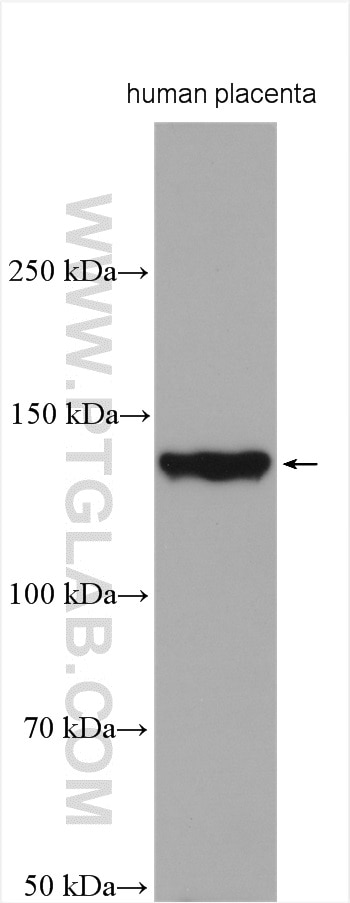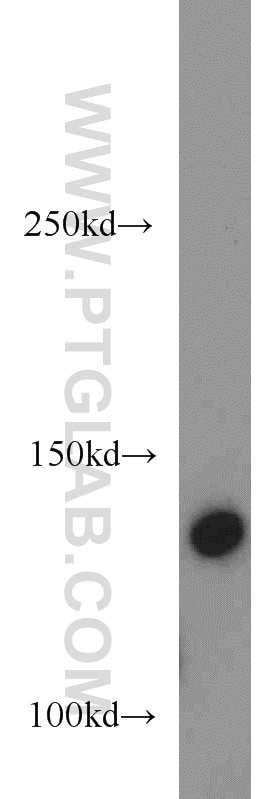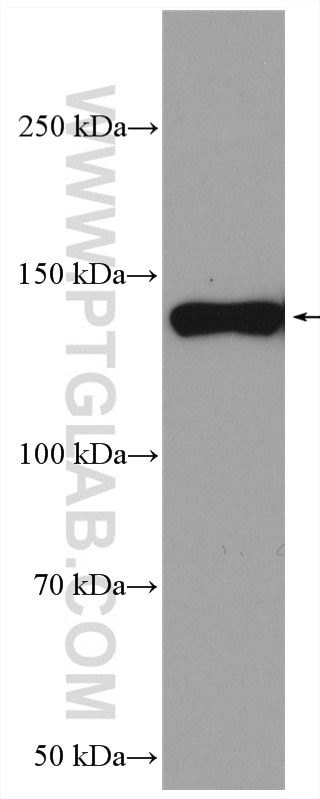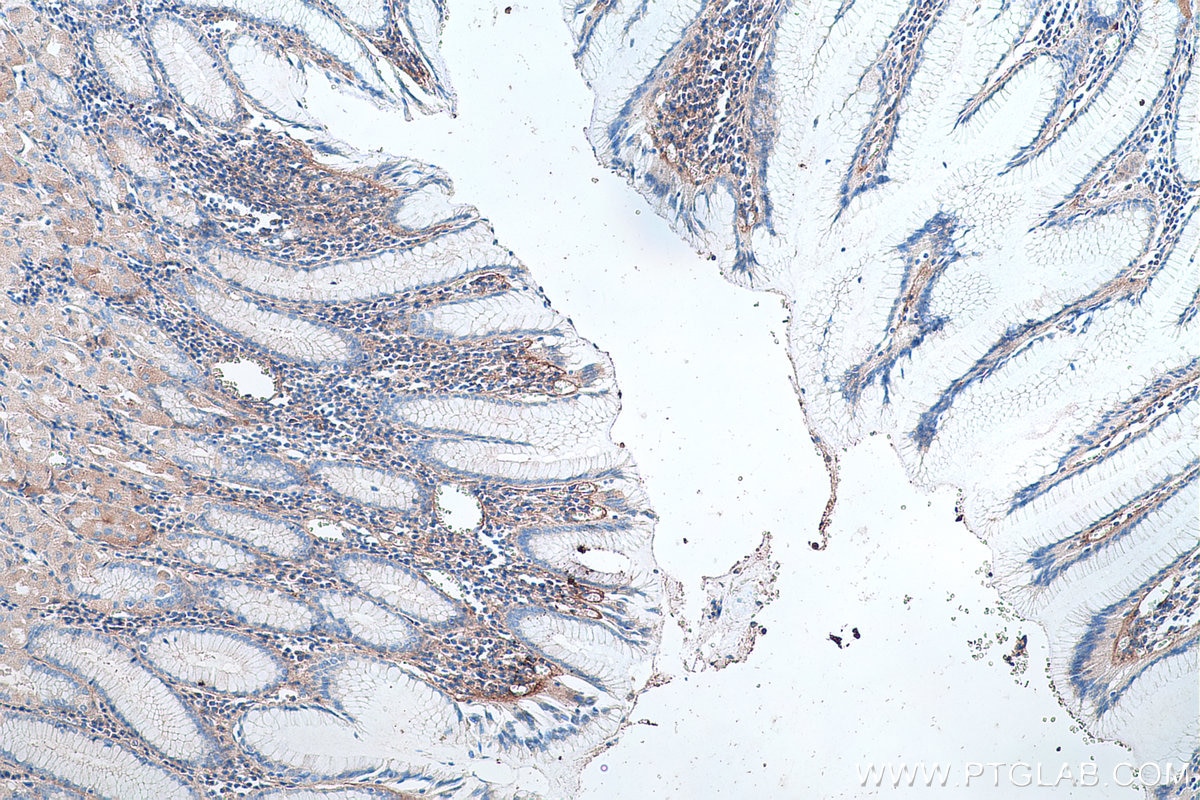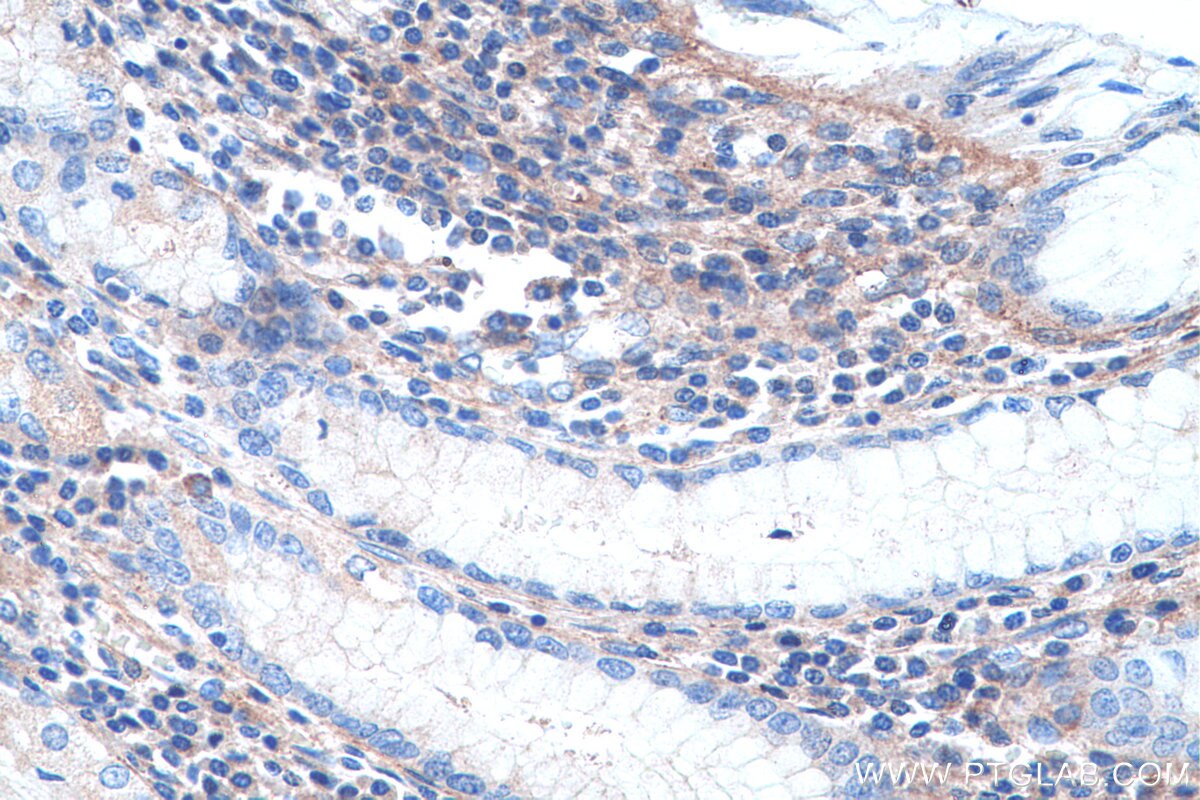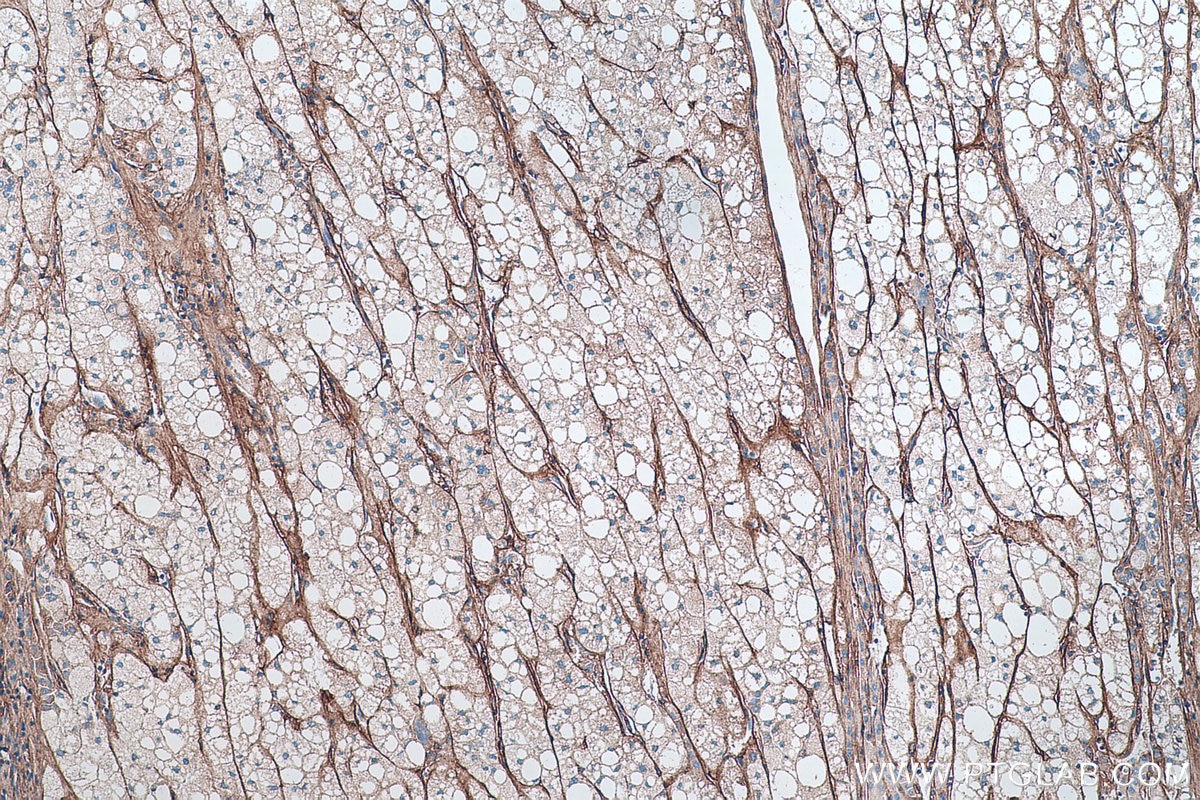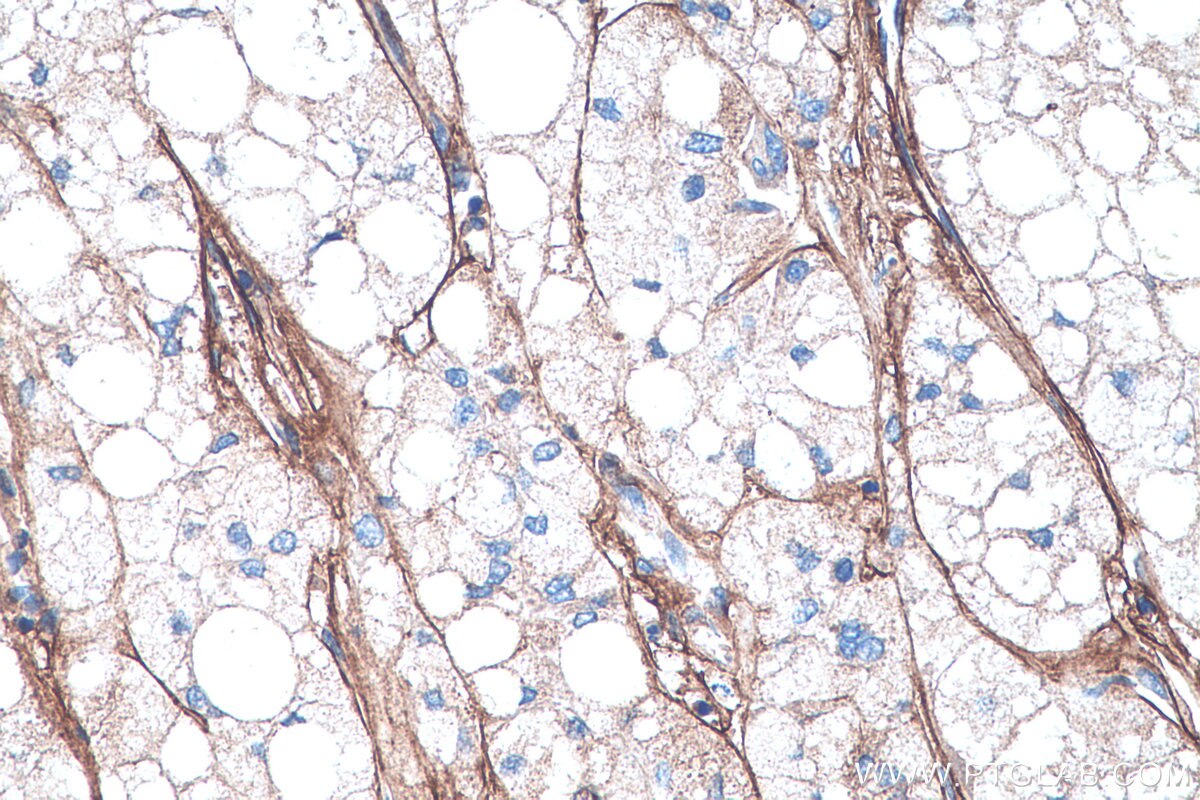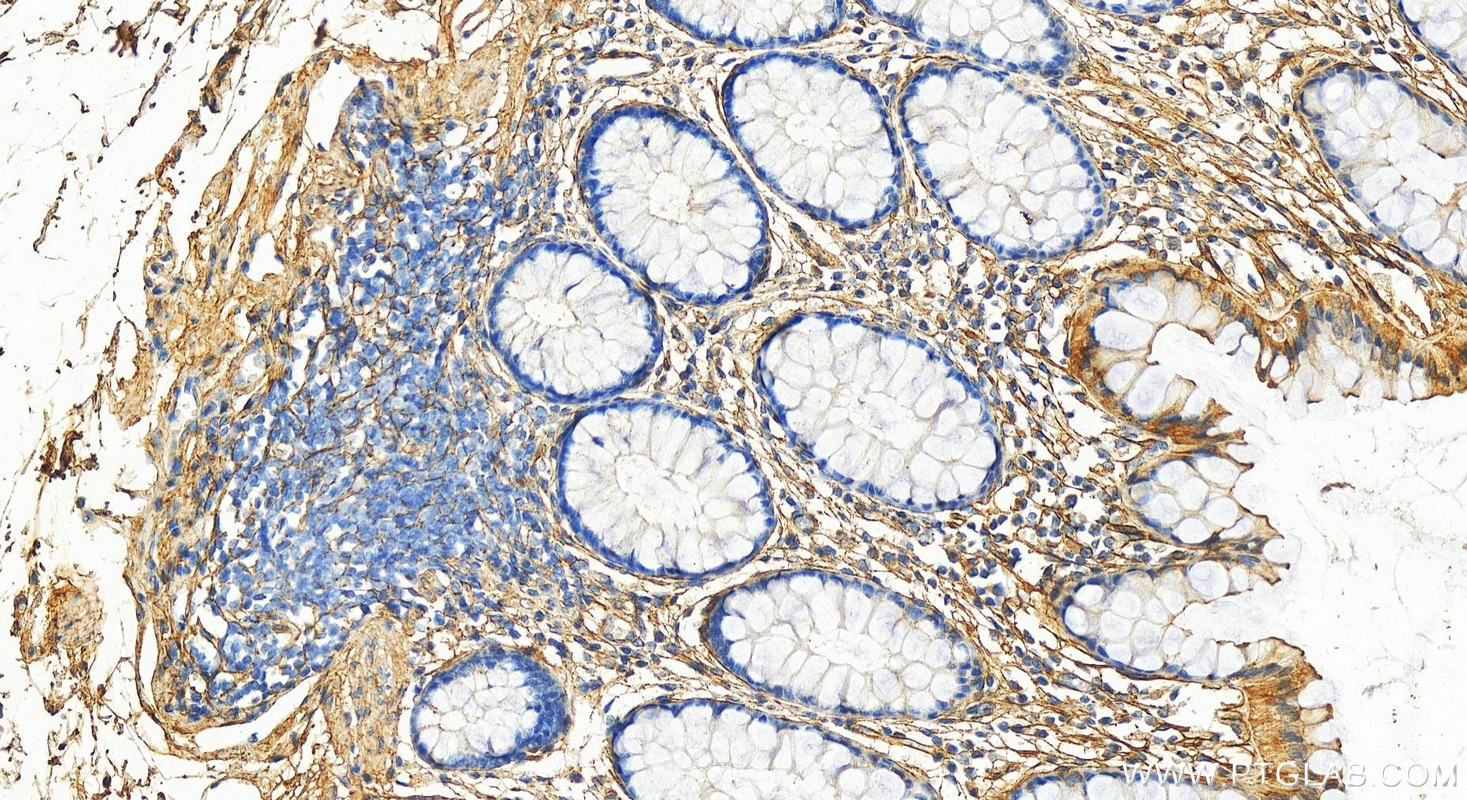Tested Applications
| Positive WB detected in | human placenta tissue, pig skin tissue, human heart tissue |
| Positive IHC detected in | human stomach tissue, human liver cancer tissue, human normal colon Note: suggested antigen retrieval with TE buffer pH 9.0; (*) Alternatively, antigen retrieval may be performed with citrate buffer pH 6.0 |
Recommended dilution
| Application | Dilution |
|---|---|
| Western Blot (WB) | WB : 1:1000-1:4000 |
| Immunohistochemistry (IHC) | IHC : 1:500-1:2000 |
| It is recommended that this reagent should be titrated in each testing system to obtain optimal results. | |
| Sample-dependent, Check data in validation data gallery. | |
Published Applications
| WB | See 6 publications below |
| IHC | See 3 publications below |
| IF | See 2 publications below |
Product Information
14853-1-AP targets COL6A2 in WB, IHC, IF, ELISA applications and shows reactivity with human, pig samples.
| Tested Reactivity | human, pig |
| Cited Reactivity | human |
| Host / Isotype | Rabbit / IgG |
| Class | Polyclonal |
| Type | Antibody |
| Immunogen |
CatNo: Ag6635 Product name: Recombinant human COL6A2 protein Source: e coli.-derived, PGEX-4T Tag: GST Domain: 671-1019 aa of BC065509 Sequence: FEAIQLDDERIDSLSSFKEAVKNLEWIAGGTWTPSALKFAYDRLIKESRRQKTRVFAVVITDGRHDPRDDDLNLRALCDRDVTVTAIGIGDMFHEKHESENLYSIACDKPQQVRNMTLFSDLVAEKFIDDMEDVLCPDPQIVCPDLPCQTELSVAQCTQRPVDIVFLLDGSERLGEQNFHKARRFVEQVARRLTLARRDDDPLNARVALLQFGGPGEQQVAFPLSHNLTAIHEALETTQYLNSFSHVGAGVVHAINAIVRSPRGGARRHAELSFVFLTDGVTGNDSLHESAHSMRKQNVVPTVLALGSDVDMDVLTTLSLGDRAAVFHEKDYDSLAQPGFFDRFIRWIC Predict reactive species |
| Full Name | collagen, type VI, alpha 2 |
| Calculated Molecular Weight | 109 kDa |
| Observed Molecular Weight | 140 kDa |
| GenBank Accession Number | BC065509 |
| Gene Symbol | COL6A2 |
| Gene ID (NCBI) | 1292 |
| RRID | AB_2083226 |
| Conjugate | Unconjugated |
| Form | Liquid |
| Purification Method | Antigen affinity purification |
| UNIPROT ID | P12110 |
| Storage Buffer | PBS with 0.02% sodium azide and 50% glycerol, pH 7.3. |
| Storage Conditions | Store at -20°C. Stable for one year after shipment. Aliquoting is unnecessary for -20oC storage. 20ul sizes contain 0.1% BSA. |
Background Information
Collagen VI, composed of three polypeptides, alpha-1(VI), alpha-2(VI), and alpha-3(VI) chains, is a beaded filament collagen found in most connective tissues. The alpha-1(VI) and alpha-2(VI) chains are 140 kDa, while the alpha-3(VI) chain is 200-300 kDa (PMID: 3792302, 3348212). COL6A2 gene encodes the alpha-2 subunit of type VI collagen. The alpha-2(VI) subunit has a calculated molecular weight of 109 kDa, and an apparent molecular weight of 140 kDa due to posttranslational modification. Mutations in COL6A2 gene are associated with Bethlem myopathy and Ullrich scleroatonic muscular dystrophy. Three transcript variants have been identified for this gene.
Protocols
| Product Specific Protocols | |
|---|---|
| IHC protocol for COL6A2 antibody 14853-1-AP | Download protocol |
| WB protocol for COL6A2 antibody 14853-1-AP | Download protocol |
| Standard Protocols | |
|---|---|
| Click here to view our Standard Protocols |
Publications
| Species | Application | Title |
|---|---|---|
Matrix Biol Proteome-wide and matrisome-specific atlas of the human ovary computes fertility biomarker candidates and open the way for precision oncofertility. | ||
Mol Cell Proteomics Reductive Stress Selectively Disrupts Collagen Homeostasis and Modifies Growth Factor-independent Signaling Through the MAPK/Akt Pathway in Human Dermal Fibroblasts | ||
FASEB J Differentiation of diabetic foot ulcer-derived induced pluripotent stem cells reveals distinct cellular and tissue phenotypes. | ||
Mol Cell Proteomics Reductive Stress Selectively Disrupts Collagen Homeostasis and Modifies Growth Factor-independent Signaling Through the MAPK/Akt Pathway in Human Dermal Fibroblasts | ||
Exp Ther Med COL3A1, COL5A1 and COL6A2 serve as potential molecular biomarkers for osteoarthritis based on weighted gene co‑expression network analysis bioinformatics analysis | ||
Reviews
The reviews below have been submitted by verified Proteintech customers who received an incentive for providing their feedback.
FH RICHA (Verified Customer) (12-02-2019) | Excellent, no background
|

